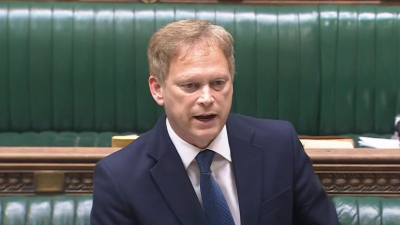Labour has taken a decisive step forward by assembling an expert panel to spearhead the overhaul of His Majesty's Revenue and Customs (HMRC) in the event of a victorious bid in the next election. With a firm commitment to alleviate the frustration of individuals being left hanging on the phone, Shadow Chancellor Rachel Reeves emphasized the paramount importance of enhancing HMRC's efficiency and accessibility. In a conversation with Sky News, Reeves articulated the panel's pivotal role in refining tax compliance measures and bolstering government revenue streams, alongside modernizing HMRC's technological infrastructure.
Addressing the prevalent issue of prolonged waiting times for callers, Reeves stressed the urgent need for a revamped HMRC experience, where individuals aren't left stranded due to unanswered calls. This proactive initiative follows recent public outcry and political backlash against HMRC's initial plan to shutter its helplines for half of the year, underscoring Labour's commitment to responsive governance.
Simultaneously, Labour unveiled strategies to offset budgetary shortfalls resulting from the Conservatives' adoption of key revenue-raising policies. By targeting tax avoidance and rectifying loopholes in non-dom pledges, Labour aims to generate £5bn by the conclusion of the next parliamentary term. These funds are earmarked for vital initiatives such as establishing breakfast clubs for primary school children and bolstering NHS staffing levels, representing a tangible commitment to improving the lives of countless individuals across the nation.
In the face of skepticism regarding the scale of these financial allocations, Reeves rebuffed assertions that £5bn represents a negligible fraction of overall public spending. Instead, she underscored the transformative impact these funds would have on frontline public services, emphasizing Labour's unwavering dedication to equitable resource allocation.
Reeves juxtaposed Labour's resolute stance on tax avoidance with the Conservative government's perceived reluctance to address the issue comprehensively. Asserting Labour's readiness to make tough decisions and prioritize the welfare of citizens, she emphasized the imperative of redirecting funds towards essential public services.
As Labour's prospective chancellor faces heightened scrutiny over her proposed policies, the party remains steadfast in its commitment to effecting meaningful change. With a comprehensive vision for fiscal responsibility and social equity, Labour's agenda promises tangible benefits for communities across the UK.
Amidst the pressing political landscape, Shadow Chancellor Rachel Reeves underscored the necessity of prudent fiscal management in the wake of the Conservatives' alleged fiscal irresponsibility. Emphasizing Labour's commitment to fiscal transparency, Reeves assured the public that every policy outlined in the party's manifesto would be meticulously costed and adequately funded. Against the backdrop of economic uncertainty, she pledged to restore stability and confidence to the economy, contrasting Labour's approach with the perceived chaos of recent years.
Responding to inquiries about potential tax cuts under her tenure, Reeves expressed a desire to alleviate the tax burden on working-class citizens while exercising prudence in making promises. While reiterating Labour's dedication to safeguarding pensions through the triple lock mechanism, she hinted at the possibility of an emergency budget swiftly following a Labour government assuming office.
Reeves outlined key measures slated for inclusion in Labour's inaugural budget, including initiatives to close non-dom loopholes, extend windfall taxes, and potentially impose VAT on private school fees. Acknowledging the necessity of a comprehensive budget and spending review, she stressed the importance of securing victory in the upcoming election to enact Labour's policy agenda effectively.
In response to queries regarding ongoing controversies involving Labour Deputy Leader Angela Rayner's past living arrangements and tax affairs, Reeves maintained a stance of impartiality, affirming her trust in Rayner's integrity while emphasizing her lack of access to colleagues' tax records or legal advice. Maintaining solidarity with Rayner, Reeves reiterated her confidence in her colleague's judgment and character.
As Labour navigates the intricacies of policy implementation and electoral dynamics, Reeves' statements reflect a commitment to responsible governance and ethical conduct, underscoring Labour's vision for inclusive prosperity and accountability.
In conclusion, Rachel Reeves' remarks highlight Labour's steadfast dedication to fiscal responsibility, transparency, and ethical governance. As the party prepares to contest the upcoming election, Reeves articulates a vision for economic stability, fairness, and social progress. With a commitment to carefully costed policies and prudent fiscal management, Labour aims to restore confidence in the economy and deliver tangible benefits to the working-class citizens. Moreover, Reeves' reaffirmation of trust in Angela Rayner amidst ongoing controversies underscores the importance of integrity and solidarity within the party. As Labour charts its course forward, Reeves' statements serve as a testament to the party's unwavering commitment to accountable leadership and inclusive prosperity for all.







